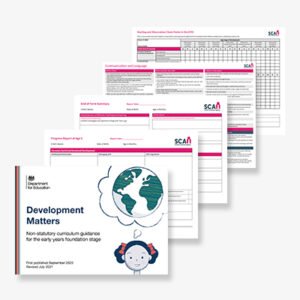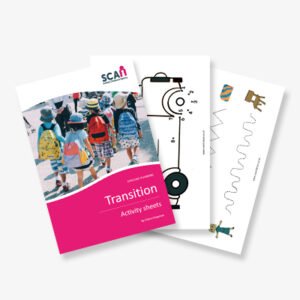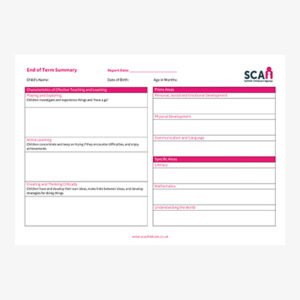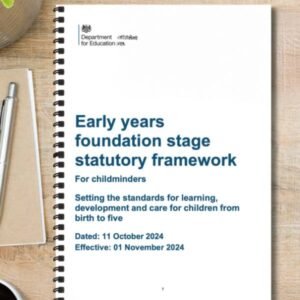Birth to 5 Matters
£5.00
Birth to 5 Matters” is a practical guide for early years education, supporting child development from birth to five years old. It focuses on promoting positive learning experiences through play-based activities. The framework outlines key areas of development, including communication, physical skills, and emotional well-being. It encourages a holistic approach, ensuring children’s individual needs are met. The guide is designed for early years practitioners to support effective teaching methods. It helps ensure that all children receive high-quality early education. “Birth to 5 Matters” aligns with the Early Years Foundation Stage (EYFS) and promotes inclusive learning for all children.
Understanding Birth to 5 Matters in Early Years Education
Birth to 5 Matters supports early years practitioners with guidance rooted in child development and inclusive practice. It reflects a child-centred, play-based approach.
This non-statutory guidance complements the Early Years Foundation Stage (EYFS). It encourages professional judgement, flexibility, and meaningful learning experiences.
Core Values of Birth to 5 Matters
Children learn best through relationships, exploration, and play. Birth to 5 Matters places children’s rights and experiences at its core.
It promotes equity, respect, and diversity. Practitioners must honour each child’s background, needs, and identity in their practice.
Child development does not follow a fixed pattern. This framework values varied paths and celebrates individual growth and learning styles.
Developmentally Appropriate Practice
Birth to 5 Matters supports developmentally appropriate practice. Practitioners use knowledge of child development to guide observations and plan learning.
The document breaks development into overlapping age bands. These help practitioners understand common behaviours and expectations without setting strict goals.
This approach avoids pressure on children. It respects natural development and supports learning through freedom, not restriction.
The Role of the Adult
Adults build strong relationships with children and families. This secure foundation allows children to thrive and feel safe in learning environments.
Practitioners listen, observe, and respond sensitively. Their role is to extend learning without directing or controlling play.
Environments must be rich, accessible, and inclusive. Resources should reflect children’s lives, cultures, and interests to spark curiosity and connection.
What to Look Out For
Watch for signs of well-being, involvement, and curiosity. Children should feel free to express thoughts, ideas, and emotions.
Check if planning reflects children’s interests and development. Avoid rigid targets that limit learning opportunities.
Ensure practitioners remain reflective and informed. They should stay committed to professional development and child-centred values.
Final Thoughts
This presentation provides essential support for quality early years practice. It encourages respect, freedom, and curiosity in every learning experience.
By using this guidance, practitioners nurture confident, capable, and happy learners from the earliest stages of life.






